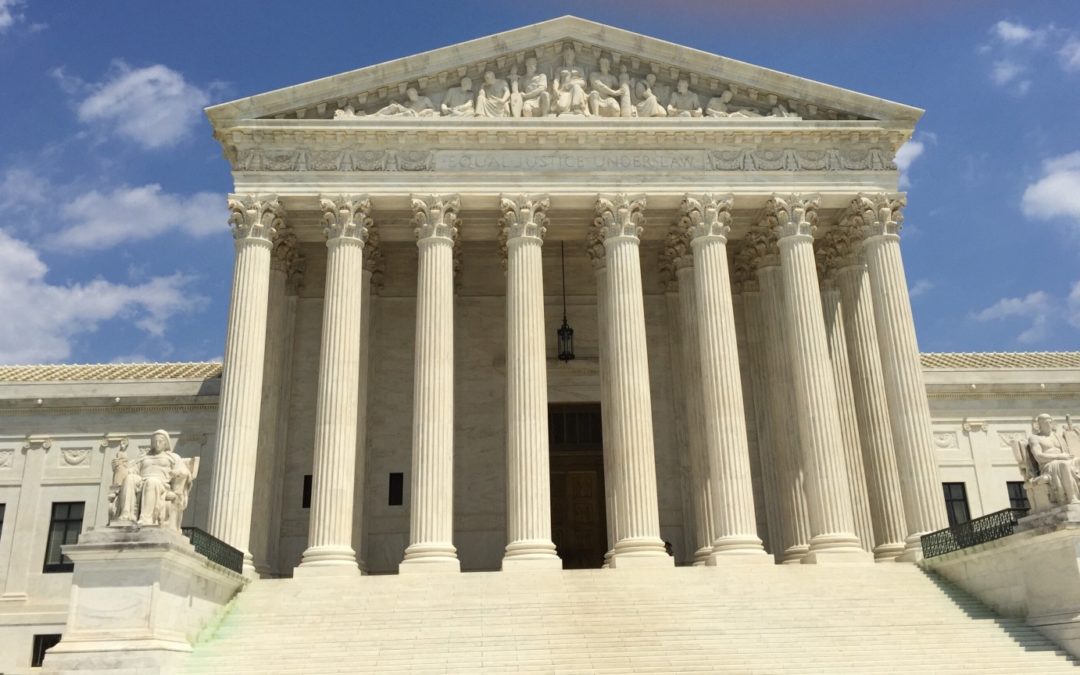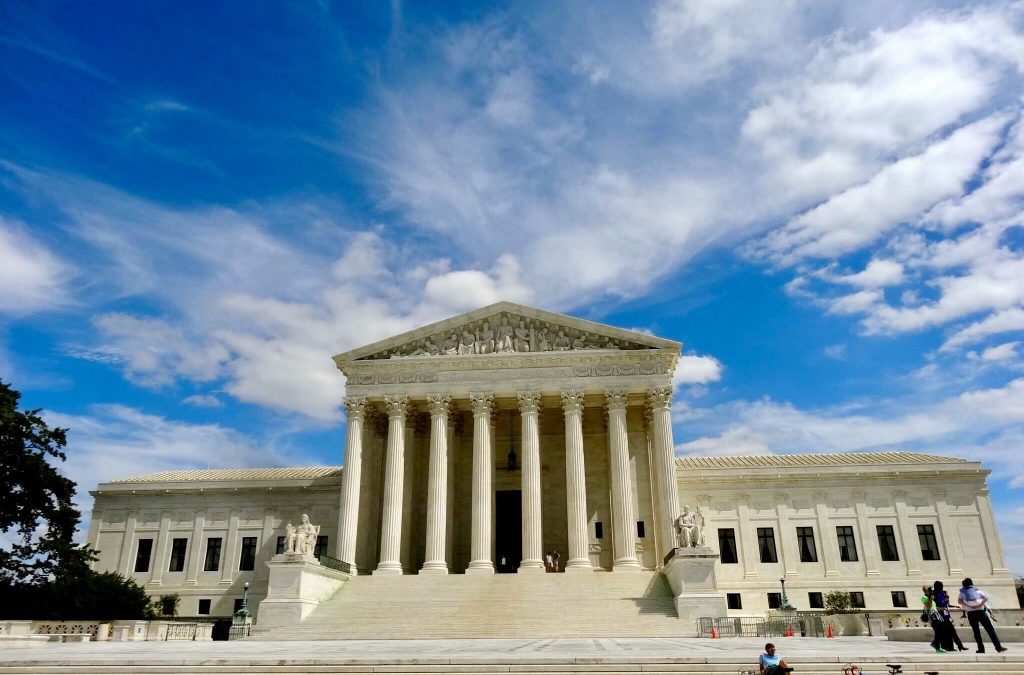


Supreme Court Ruling Strengthens First Amendment Protections: Implications for Michigan’s Threat Speech Laws
In a significant legal development, the United States Supreme Court has recently issued a ruling that has far-reaching implications for individuals facing charges related to “threat speech” in Michigan. The case of Counterman v. Colorado, decided on June 27, 2023, reaffirms the fundamental importance of the First Amendment while reshaping the legal landscape for cases involving threats. In this article, we will explore the key aspects of this ruling and its impact on Michigan’s laws.
Summary of the Case
Billy Counterman sent a series of disturbing social media messages to a local musician, causing her severe emotional distress. The case revolved around whether these messages constituted “true threats” under the First Amendment. The Supreme Court, in a 7-2 decision, held that true-threat cases require a subjective mens rea standard, and the applicable standard is recklessness. In simple terms, the state must now prove that the defendant consciously disregarded a substantial risk that their communications would be viewed as threatening violence.
Impact on Michigan’s Laws
This ruling has direct implications for Michigan’s statutes that criminalize “threat speech” offenses. Laws related to assault, ethnic intimidation, and verbal threats of terrorism now require prosecutors to meet a higher burden of proof. They must demonstrate that the defendant was aware, in some way, of the threatening nature of their statements.
This shift places a greater emphasis on understanding the defendant’s subjective intent. This marks a significant departure from the previous objective “reasonable person” standard.
Protecting Free Speech
The Counterman ruling underscores the delicate balance between protecting free speech and preventing dangerous communications. While the First Amendment safeguards our right to express even controversial or unpopular opinions, it is essential to draw the line when speech crosses into the realm of genuine threats. The Court acknowledged that some true threats may go unpunished, but this decision also ensures that protected speech is protected.
At Komorn Law, we have a deep understanding of constitutional law and criminal defense in Michigan. With over 30 years of experience, we have successfully represented clients facing charges under similar statutes. Our legal team provides expert counsel and aggressive advocacy for those accused of any crime or alleged illegal activities. Call our Office 248-357-2550
Conclusion:
The Counterman v. Colorado Supreme Court ruling is a landmark decision that strengthens First Amendment protections while redefining the criteria for true-threat cases. For individuals in Michigan facing legal issues related to threat speech, it is crucial to have experienced legal representation. Komorn Law stands ready to provide the expertise and advocacy necessary to protect your rights and defend against these charges.
If you or someone you know has been accused of a crime or DUI.
Call Komorn Law – Call Now 248-357-2550
Komorn Law Social Media
Recent Posts
- Compounding Charges Laws in Michigan
- Harris unveils new proposals targeting black men with cannabis legalization
- Cleary becomes latest US law firm to add non-equity partners
- What is the Difference Between a Magistrate and a Judge
- Add on charges for your permanent record – Using a computer
- MI Court of Appeals – MRTMA defense denied dismissal
- The “Automobile Exception” in Michigan law
- Can You Be Charged for Using Your Phone During a Crime in Michigan?
- The search being challenged was triggered by the odor of cannabis
DISCLAIMER
In a legal environment that continues to evolve, it is essential to stay informed and seek guidance from knowledgeable professionals. Before acting on any information you find on the internet, this website, any linked website, any referring website or any verbal or written information consult a licensed attorney. Contact Komorn Law today to discuss your case and learn how we can assist you in navigating the complexities of Michigan’s laws. Consult an Attorney – Remember you’re on the internet.


Supreme Court Asked to Resolve Federal Drug Law v. State Medical Marijuana
The U.S. Supreme Court has been asked to address whether federal drug law that criminalizes possession of marijuana invalidates state orders requiring employers and their workers’ compensation insurers to pay for medical marijuana prescriptions for employees injured on the job.
However, before it fully takes on the question, the high court has asked the Solicitor General, who represents the federal government before the high court, for guidance in light of the Supremacy Clause of the U.S. Constitution that gives federal statutes primacy over state laws.
Five state supreme courts have addressed whether the reimbursement of medical marijuana costs is permissible, with two ruling yes and three ruling no. The Supreme Court is being asked to resolve this split in authority. Under the federal Controlled Substances Act (CSA), the manufacture, distribution, or possession of marijuana is a criminal offense, with the exception of when the drug is part of a Food and Drug Administration research study.
The Supreme Court’s involvement is related to two cases from Minnesota — Bierbach v Diggers Polaris and State Auto/ United Fire & Casualty and Musta v. Mendota Heights Dental Center and — in which injured employees challenged their employers and their insurers for refusing to reimburse them for their medical marijuana prescriptions.
Musta suffered a neck injury in her work at a medical facility while Bierbach was injured in an accident while working for an all-terrain vehicle dealer.
Read More here –> READ IT
Komorn Law Social Media
Recent Posts
- Compounding Charges Laws in Michigan



- Harris unveils new proposals targeting black men with cannabis legalization



- Cleary becomes latest US law firm to add non-equity partners



- What is the Difference Between a Magistrate and a Judge



- Add on charges for your permanent record – Using a computer



- MI Court of Appeals – MRTMA defense denied dismissal




Tag Cloud
2021 BMMR cannabis CBD corruption. prosecutors dispensary Driving DUI forfeiture gun rights hemp komornlaw lara law enforcement abuse laws Legalization marijuana Medical Marijuana Michigan michigan laws michigan news MMFLA MRA news police politics science usa news us supreme court Your Rights
DISCLAIMER
This post may contain re-posted content, opinions, comments, ads, third party posts, outdated information, posts from disgruntled persons, posts from those with agendas and general internet BS. Therefore…Before you believe anything on the internet regarding anything – do your research on Official Government and State Sites, Call the Michigan State Police, Check the State Attorney General Website and Consult an Attorney – Use Your Brain.


US Supreme Court votes remotely to deny voters right to vote remotely
Politifact Summary
- The U.S. Supreme Court did indeed meet and vote remotely to rule on the Wisconsin election.
- But it’s a stretch to say they denied a “right to vote remotely”
- The traditional remote voting right is to cast an absentee ballot by Election Day, and that was still allowed under this ruling.
- The court struck down a lower court decision that would have allowed any absentee ballot received by April 13, 2020, to count, not just those postmarked by Election Day.
A pair of high court rulings set the stage for Wisconsin’s April 7, 2020 pandemic election.
The Wisconsin Supreme Court struck down an order from Gov. Tony Evers that would have moved the election back to June, which kept in-person voting in place.
And the U.S. Supreme Court ruled that all absentee ballots had to be postmarked by Election Day, reversing a federal judge’s order, forcing thousands who requested but didn’t receive an absentee ballot to vote in person if they wanted their vote to count.
Politifact Sources
- Facebook post by Conservatives Are Destroying Our Future, April 7, 2020
- Milwaukee Journal Sentinel, Wisconsin justices block Tony Evers’ order to shut down election, U.S. Supreme Court restricts absentee voting, April 6, 2020
- Interview with Richard Wolf, USA TODAY reporter covering the Supreme Court, April 9, 2020
- U.S. Supreme Court, opinion on Republican National Committee et al v. Democratic National Committee et al, April 6, 2020
- U.S. Supreme Court, Press Release Regarding Postponement of April Oral Arguments, April 3, 2020
- U.S. Supreme Court, Press Release Regarding Postponement of March Oral Arguments, March 16, 2020
- New York Times, Rulings on Wisconsin Election Raise Questions About Judicial Partisanship, April 7, 2020
Need an attorney to defend your rights in a criminal case?
Call Attorney Michael Komorn (248) 357-2550 for a free case evaluation.
Recent Posts


Listen Live to the US Supreme Court
Listen live to arguments in the Supreme Court.
On Monday, the Supreme Court is set to hear arguments over the phone for the first time ever due to the coronavirus pandemic; they’ll hear 10 cases remotely from now until May 13. But that’s not the only history being made on Monday, as the Supreme Court will also for the first time ever make the audio available to be listened to live, The Associated Press reports.
Listen Here at link below on NPR
https://www.npr.org/2020/05/03/848317039/listen-live-supreme-court-arguments-begin-monday
Need an attorney to defend your rights in a criminal case?
Call someone who cares. Attorney Michael Komorn (248) 357-2550


